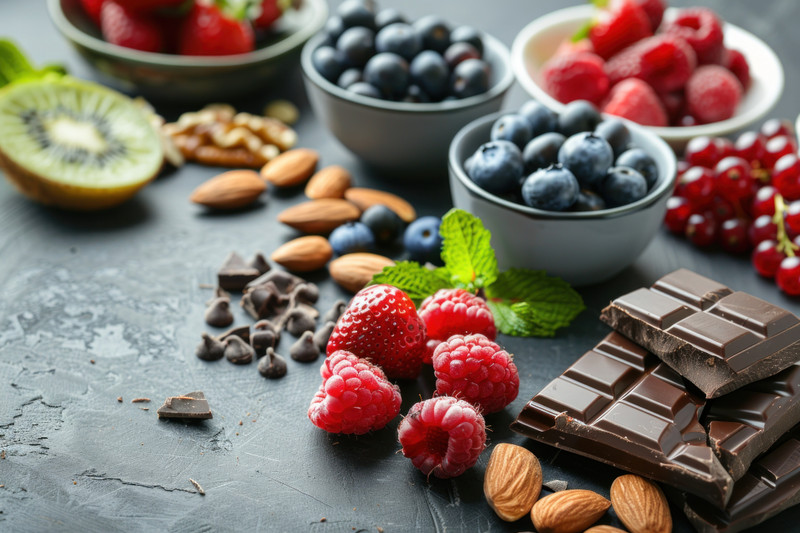You've likely heard that an apple a day keeps the doctor away, but did you know that a glass of grape juice — or even a glass of red wine — might help you feel healthier in a variety of ways? This is thanks to a potent ingredient known as resveratrol, a powerful antioxidant that may provide numerous health benefits. But before you seek out supplements or pour another glass of wine, let’s take a closer look at the benefits of resveratrol and how you can incorporate it into your wellness routine.
What Is Resveratrol?
Resveratrol is a polyphenol, a natural compound found in several plants, acting as a highly potent antioxidant. While it’s found in foods like peanuts, blueberries, and cranberries, it’s most abundant in the skin of grapes, making grape juice and red wine especially rich sources. Red wine, in particular, contains higher levels of resveratrol than white wine due to the fermentation process that retains the grape skins .
The Benefits of Resveratrol
As with other antioxidants, resveratrol offers protective properties that may benefit various systems within your body, potentially contributing to heart health, brain function, and more. While research into resveratrol’s specific effects is ongoing, here are some of the ways it could support your overall well-being.
Supports Brain and Heart Health
As an antioxidant, resveratrol helps protect cells from damage by neutralizing harmful free radicals. This cellular protection is especially beneficial for brain and heart health. Resveratrol’s anti-inflammatory properties may offer neuroprotective effects, possibly preserving memory and reducing the risk of neurodegenerative diseases. Additionally, it could improve cardiovascular health by shielding your blood vessels, lowering your risk of heart disease and stroke.
Improves Cholesterol Levels
Resveratrol may also help manage cholesterol levels by boosting HDL (good cholesterol) while lowering LDL (bad cholesterol). This effect is particularly important for cardiovascular health, as maintaining a favorable cholesterol balance reduces the risk of artery blockage and heart disease .
Reduces Blood Clotting
Resveratrol’s role in improving blood vessel function may also contribute to a reduced risk of blood clot formation. This, coupled with the mild blood-thinning effects of red wine, may lower your chances of developing dangerous clots, particularly when consumed in moderation .
Should You Supplement with Resveratrol?
While resveratrol-rich foods like grapes, grape juice, and red wine can be a healthy part of your diet, many people turn to supplements to maximize their intake. However, it’s important to note that resveratrol supplements aren’t regulated by the FDA, so the dosage and quality may vary significantly between products . In addition, excessive consumption of resveratrol, especially in supplement form, may lead to side effects such as nausea, diarrhea, and gastrointestinal issues.
For most individuals, it’s best to incorporate resveratrol from natural sources. A glass of red wine or grape juice can provide a moderate amount of resveratrol, but if you choose to supplement, consult your healthcare provider to ensure the right dosage and avoid potential interactions with other medications.
Resveratrol Red Wine Complex by DC Labs
For powerful antioxidant protection and longevity support, DC Labs Resveratrol Red Wine Complex is an excellent choice. This advanced formula combines premium ingredients like Resveratrol (derived from Tiger Cane root), Green Tea Extract, Quercetin, Grape Skin and Grape Seed Extracts, along with Trans-Pterostilbene to deliver maximum antioxidant and anti-aging benefits.
Key benefits of Resveratrol Red Wine Complex include:
-
Cellular Protection: Combats oxidative stress and free radicals, helping to protect cells and DNA from damage associated with aging.
-
Heart Health Support: Promotes cardiovascular health by supporting healthy circulation, blood pressure, and cholesterol levels.
-
Anti-Inflammatory Benefits: Reduces inflammation, a primary contributor to aging and chronic disease.
-
Enhanced Cognitive Function: Supports brain health and cognitive performance, potentially protecting against age-related cognitive decline.
-
Energy and Metabolism Boost: Aids healthy metabolism and provides natural energy support.
The Resveratrol Red Wine Complex by DC Labs provides a convenient and effective way to integrate powerful, scientifically-backed nutrients into your daily routine, promoting vibrant health and longevity from the inside out.
A Holistic Approach to Wellness
While resveratrol has shown promise in supporting overall health, it’s essential to remember that no single nutrient can do it all. A balanced diet rich in vitamins, minerals, and antioxidants — combined with an active lifestyle — is key to promoting long-term wellness. Supplements, when used wisely, can complement a healthy diet, but whole foods are often the most effective way to nourish your body naturally.
At Earthturns, we believe in the power of natural ingredients to support optimal health. Our range of supplements, including those containing polyphenols like resveratrol, is designed to complement your daily nutrition and help you live a healthier, more vibrant life.

